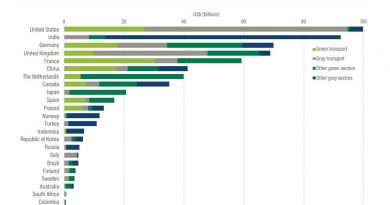Comment: Making social media work for your small business
By Steve Baskerville, Caffeine Injection – online services for small businesses
Algorithm. It’s a great word. It sounds authoritative, clever even. It’s got just enough syllables to remain memorable but not so many it’s hard to pronounce. Until a few years ago the only people who ever used it were geeks, now anyone who fancies themselves as a social media guru will throw it out there.
What is an algorithm? No idea. I know it’s some mathematical thing. In the movies characters who are meant to be brainy write on them glass windows. Beyond that I’m clueless.
Why am I talking about it in a social media article then? Because, social platforms use them to make decisions about what does, and doesn’t feature. In fact, it goes far beyond social media now. As “The Internet Of Things” becomes a reality the innocent algorithm is becoming the modern day Health And Safety excuse of choice: Why did your company make that silly decision? The algorithm told us to.
When it comes to social networks, algorithms are pointless to you and I. Even if you know how they work now they are constantly changing, so a decision reached today might be different tomorrow.
What’s my point? Ignore them, and anyone professing to understand social media who refers to them in their opening gambit.
So, social media? It’s great, and terrible, in equal measures, but invaluable to those who have something to sell. It’s a minefield too, littered with big money pits that are easy to fall in to.
Years ago I once referred to internet forums as really big rooms full of people with similar interests. With regards to cycling forums, I likened them to large rooms full of cyclists that you had free access to. As people who make their living selling stuff to cyclists why on earth would you not spend your working day engaging?
Social media is the same. Except the room is infinitely bigger, so the cyclists are harder to find. But, human nature means people tend to group with like-minded individuals, so it’s not too hard to find the huddles of riders. The bonus with social media is everyone has a big floating sign above their head listing their gender, age, interest, locations, and so on. Admittedly sometimes you have to pay to see this sign, but it’s there.
How you find your target user group varies depending on the network, but for the biggie, Facebook, there are essentially two ways, one easy, one not so easy: Paid and organic.
Paying to get your message out there via Facebook isn’t as expensive as you might think. For instance, if you have a message to get across to males aged 25-45 with an interest in mountain biking living within a ten-mile radius of your shop, depending on the population density in your area a daily budget of only £5 could have a significant impact. If you’ve carefully crafted your advert to catch people’s attention, you could typically expect a price per click of 10-20p, meaning as many as fifty potential buyers per day are visiting a listing on your website. If your website and product listings are up to scratch, that could convert to an awful lot of sales.
The key with Facebook adverts is one simple message with a tightly defined demographic, with great graphics and copy. Don’t try to create an advert that appeals to everyone: Work out your target customer and focus on them. Give them one or two good reasons to visit your site or your store.
You don’t have to pay to harness the potential of Facebook, though, organically grown clicks and likes should always be your long-term goal. Engaging posts with links to your site should be a daily occurrence for any business that wants to grow its reach.
The crucial thing there is links to your site, not others. The biggest mistake many make is sharing posts from other Facebook pages which ultimately link to their sites, not yours. While this practice is a quick and easy way to fill your timeline with relevant on topic posts, you’re actively driving YOUR audience to someone else’s website.
If there is an interesting news item that you think your audience will enjoy, create your own article, then share this link via social media. This way your driving traffic to your site, and ultimately to your shop.
That after all, is the purpose of the social networks: To drive business to your door, not others.
On social media? Keep track with CyclingIndustry.News new and bonus content at:
FaceBook: Follow us here
LinkedIn: Company page
Twitter: @cyclingindustry
Instagram: /cyclingindustrynews
CI.N Editor Twitter: @marksuttonbike
CI.N Sales Twitter: @cinloganvdp
Related: Why UK bicycle businesses may soon be sat on piles of illegal and unusable email data



